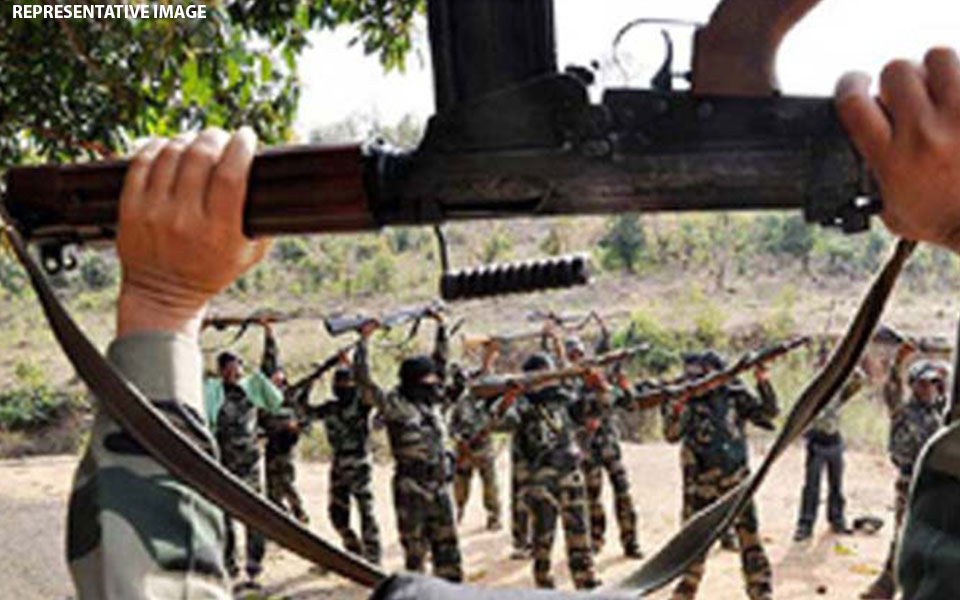Raipur, May 20: Six police personnel were killed and another was critically wounded in Chhattisgarh's Dantewada district on Sunday when a landmine planted by Maoists ripped through the vehicle they were travelling in.
P. Sundarraj, Deputy Inspector General of Police (Dantewada Range), told IANS: "Six personnel were killed while one was seriously injured."
Among the dead, five are from the Chhattisgarh Armed Force and one from the district police.
Deputy Inspector General of Police (South Bastar Range) Ratan Lal Dangi said that a road was being built on the Kirandul-Cholnar road.
"A joint team of Chhattisgarh Armed Force and district police personnel was travelling to Kirandul to provide security to the labourers and officials there."
The Maoists had reportedly planted a landmine in the Cholnar jungle area which exploded as the police vehicle drove over it, detonating with a deafening roar.
The blast killed five personnel instantly. A sixth person succumbed to his injuries later. The injured district policeman was referred to Raipur after first aid.
The powerful explosion shattered the jeep into many parts and left a 10-foot crater. The Maoists who were apparently watching from a distance took away the weapons including two AK-47, two Insas and two SLR rifles each.
Five of the dead were identified as Head Constable Ram Kumar Yadav, Assistant Constable Saligaram Vikram Yadav and Constables Teekeshwar Dhruv, Rajesh Singh and Virendra Nath.
Inspector General of Police (Bastar) Vivekanand Sinha told the media: "We have sounded a high alert in the area and launched a search operation for the Naxalites."
The blast took place two days before Chhattisgarh Chief Minister Raman Singh is set to hold a public meeting in Dantewada. Officials said security would be further increased for the Chief Minister's meeting.
Maoists have been active in the Dantewada region for decades, running a state within a state.
Let the Truth be known. If you read VB and like VB, please be a VB Supporter and Help us deliver the Truth to one and all.
Panaji (PTI): As part of a crackdown against tourist establishments violating laws and safety norms in the aftermath of the Arpora fire tragedy, Goa authorities on Saturday sealed a renowned club at Vagator and revoked the fire department NOC of another club.
Cafe CO2 Goa, located on a cliff overlooking the Arabian Sea at Vagator beach in North Goa, was sealed. The move came two days after Goya Club, also in Vagator, was shut down for alleged violations of rules.
Elsewhere, campaigning for local body polls, AAP leader Arvind Kejriwal said the fire incident at Birch by Romeo Lane nightclub at Arpora, which claimed 25 lives on December 6, happened because the BJP government in the state was corrupt.
An inspection of Cafe CO2 Goa by a state government-appointed team revealed that the establishment, with a seating capacity of 250, did not possess a no-objection certificate (NOC) of the Fire and Emergency Services Department. The club, which sits atop Ozrant Cliff, also did not have structural stability, the team found.
The Fire and Emergency Services on Saturday also revoked the NOC issued to Diaz Pool Club and Bar at Anjuna as the fire extinguishers installed in the establishment were found to be inadequate, said divisional fire officer Shripad Gawas.
A notice was issued to Nitin Wadhwa, the partner of the club, he said in the order.
Campaigning at Chimbel village near Panaji in support of his party's Zilla Panchayat election candidate, Aam Aadmi Party leader Kejriwal said the nightclub fire at Arpora happened because of the "corruption of the Pramod Sawant-led state government."
"Why this fire incident happened? I read in the newspapers that the nightclub had no occupancy certificate, no building licence, no excise licence, no construction licence or trade licence. The entire club was illegal but still it was going on," he said.
"How could it go on? Couldn't Pramod Sawant or anyone else see it? I was told that hafta (bribe) was being paid," the former Delhi chief minister said.
A person can not work without bribing officials in the coastal state, Kejriwal said, alleging that officers, MLAs and even ministers are accepting bribes.





